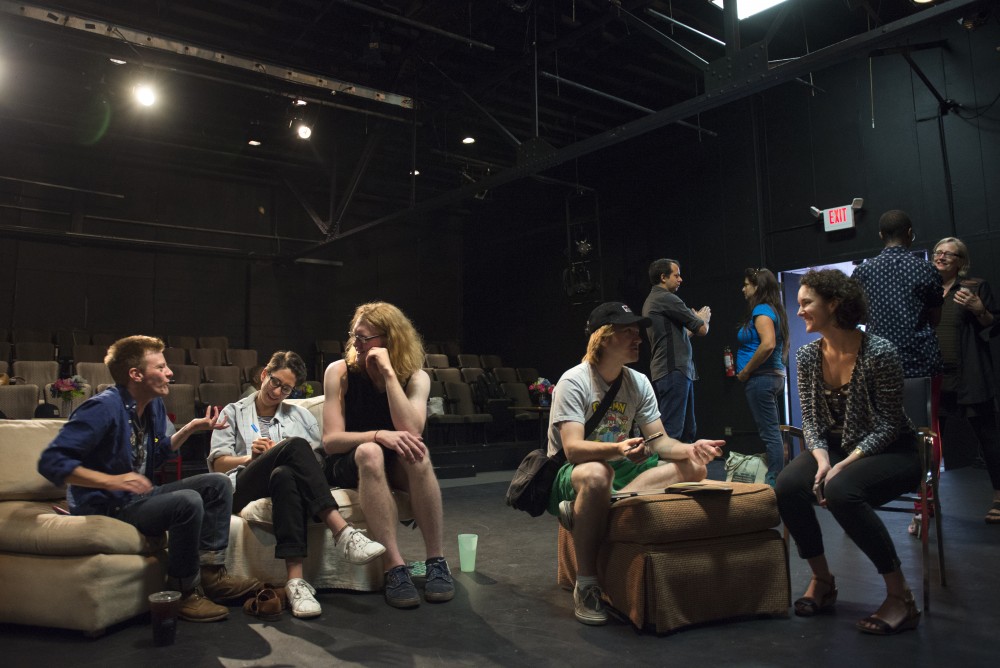A circle of wooden table chairs, beige floral ottomans and a red cloth couch set the stage for artful dialogue at the Red Eye Theater Saturday.
Part of the three-day LALA Festival, a group of around 25 artists and attendees, discussed identity, voices and inspiration openly and cozily.
Festival executive director Billy Noble said that was one of the main goals of the inaugural event.
“We create this artificial divide between audiences and artists,” Noble said. “There’s not always that chance to engage in natural conversations.”
He said the act of consuming art involves seeing it, processing it and then responding to it, which isn’t always possible.
Noble and LALA’s Artistic Director Chantal Pavageaux wanted to make an atmosphere that felt more open and accessible to all, different from many events at spaces like the Walker and the Guthrie Theater.
“We’re trying to do something different,” Noble said.
And “different” was exactly how the day’s events started.
A “speed dating” session worked to pair attendees with each other to discuss their own art, collaboration possibilities and any other concepts they enjoyed.
While the room was initially filled with quiet trepidation (a lack of morning caffeine or the idea of actual audience participation could have been to blame), time and conversation gave way to more free-flowing discussion.
New York City director, filmmaker and actor Mtume Gant is a supporter of such dialogue.
“It’s really important for artists to talk outside of commerce,” Gant said. “It allows people to be who they are.”
Interested in concepts of narrative, content and time in film, his artist talk examined how he works to try and capture the power of long shots, creating monologues of possible tension and passion.
Along with clips of his work — including the short film “White Face” which looks at the embodiment of and interest in “whiteness” within society — he discussed identity.
“I think for the majority of people in this country, the idea of identity is a very immediate thing in regard to race, gender, class,” Gant said. “They’re the main reason why people consume art, especially things like movies. And I think we’re actually taught to be that way.”
Projecting voices from women, people of color and LGBT artists, this sense of honesty in conversation and questioning was the festival’s aim.
Additional performances and discussions over the weekend from Adrienne Truscott, Jess Barbagallo and SuperGroup tied into these explorations and conversations.
Overall, Gant said he thinks events like the small yet open LALA Festival are important in art communities because they provide chances to talk as both artists and individuals, simultaneously.
“There’s no expectations in spaces like these,” Gant said. “We come and share, see where people are at and let that inform ourselves. Humanity is humanity at the end of the day.”














